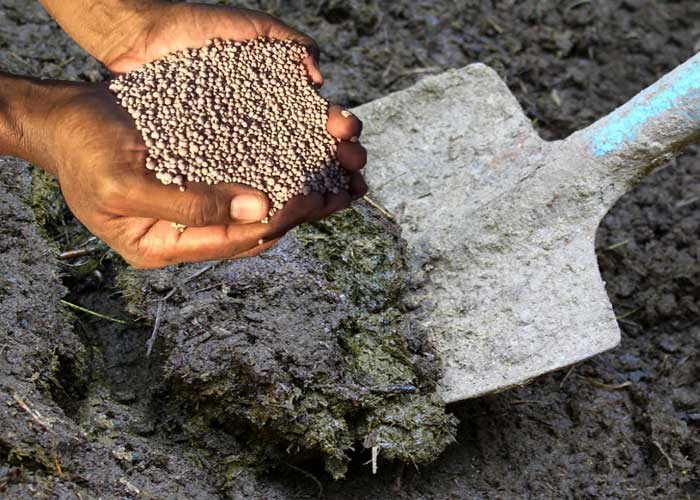The bamboo plants are heavy feeders, and even rich soils can be washed away after a few years if no fertilizer is applied. Fertilisers are used to achieve good quality and yield. Potassium, Phosphorous and Nitrogen are vital components of fertiliser. Apply green manures, organic compost, and wood ash along with fertiliser.
Manuring and fertilization can be done after proper soil testing and analysis. It is to be noted that under normal soil conditions, the composition of NPK should be 5:2:1 or 4:2:1. Plantations for the production of culms, chemical fertilizer application may be to the extent of 1,500 kilograms per hectare per year and for shoot production, the fertiliser application required may go up to 4,000 kilograms per hectare per year. A general dosage norm that may be followed is 150 grams N + 150 grams P + 150 grams K.
Bamboo responds well with NPK and dry farm yard manure or vermicompost. 15–20 kg of manure or compost can be added to the clump to promote growth. Alternatively, in the case of on-farm or high-intensity managed matured bamboo plantations, 0.5–1 kg of NPK fertilizer can be added per well-grown clump.

The first fertilizer application can be initiated one or two months after planting in which 5 kg of well-rotted manure or compost may be applied along with 50 g of NPK. Subsequent to this, at the beginning of the next rainy season, 10 kg of manure or compost and 100–150 g of NPK may be applied. The third application is in the third year at the beginning of the rainy season with 30 kg of manure or compost along with about 500 g of NPK.
